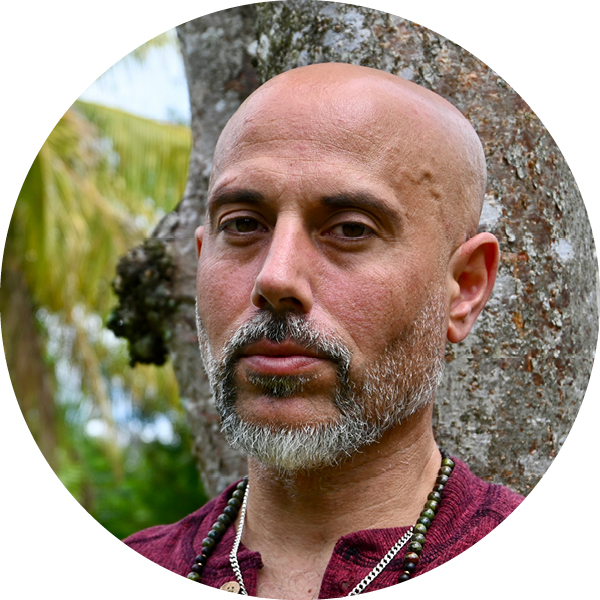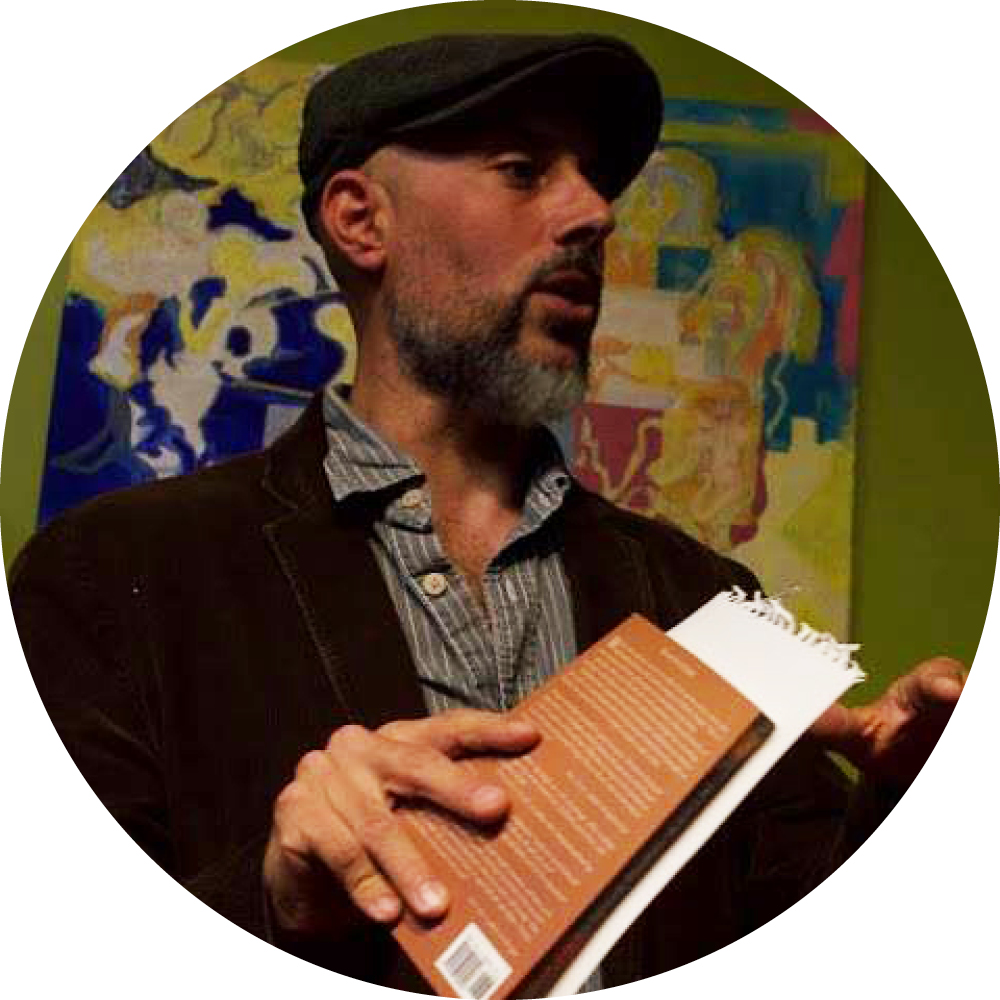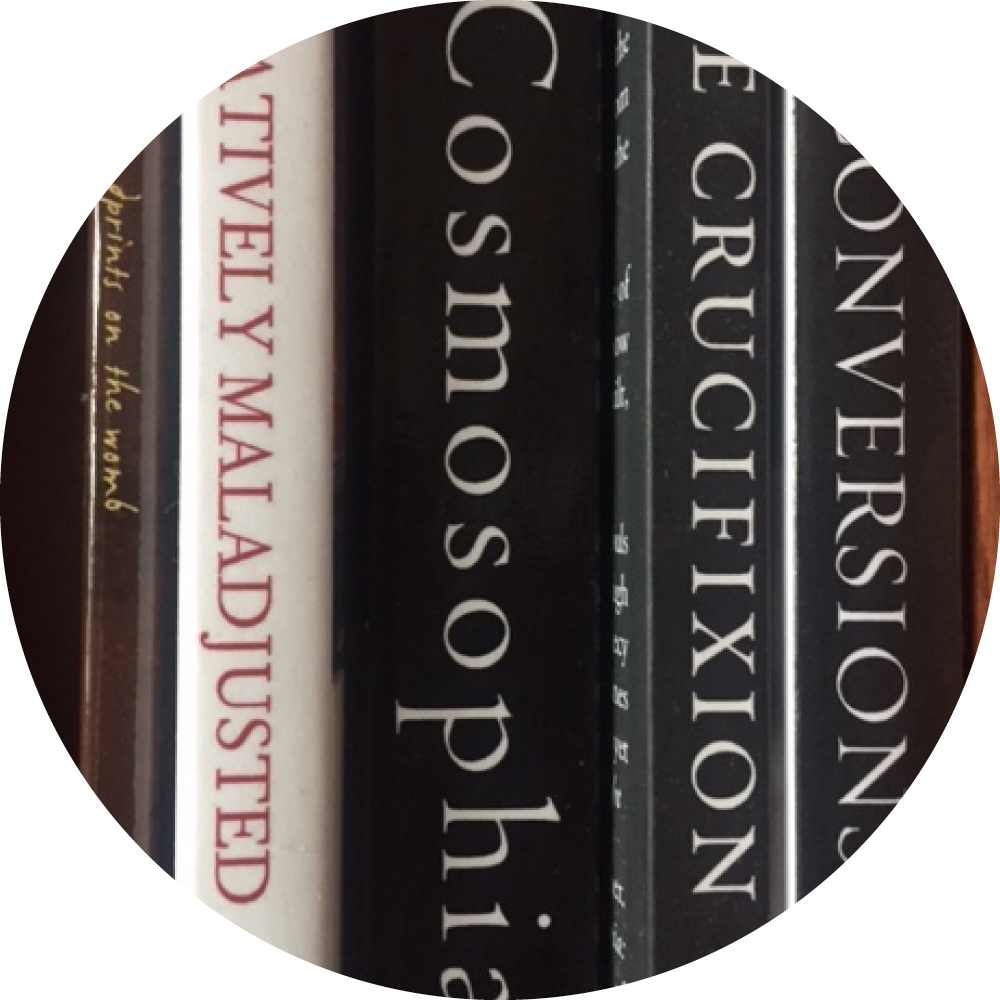The Climate & The Cage:
On Mass Extinction & Mass Incarceration
By Theodore Richards
For My Children & My Grandchildren
I. The Cage
Making connections in a civilization rooted in building fences, in drawing lines, will always be a hard sell, so bear with me. I am going to try to make sense of our moment, of the myriad crises in which we find ourselves – the many cages in which we are imprisoned. We’ve drawn these lines, built these walls, as a way to take ownership, to control a strange and dangerous world. I want to try to better understand how we got here – how we built prisons, cages, walls around bodies and minds – so that perhaps we can see a way out.
My purpose is not to analyze every crisis on the globe today. Rather, it is to describe how seemingly disparate crises are part of the same interconnected complex. In tracing the roots of these crises, we’ll uncover not only that our crises are connected, but also that it is our inability to see this interconnection that has actually caused the crisis. We have constructed walls, real and psychic, and believe that there are crises – but there is only crisis, a single, interconnected event that can be understood by uncovering the traumas of history.
II. The Climate
We are confronted with a crisis, climate change, that threatens our very survival on Earth. Never before has humanity been so threatened – at least by a threat of our own making. So, we could be forgiven for thinking that this crisis takes priority over all others. We cannot worry about our rising economic disparities, the rise of fascism, or the loneliness of the digital age because we can only afford to focus on carbon outputs – this is how the logic goes. But it is this very mentality – the fragmentation of our world, the myopic focus on the quantifiable – that has caused the collapse. A closer look at what else is going on reveals the interconnected nature of our planetary crisis.
The Global North is confronted everywhere with what has been termed the “migrant crisis.” Much has been made of the specifics of the unique manifestations of this global crisis. In their typically myopic and self-absorbed fashion, both Europe and The United States have focused primarily on how to manage their own borders – as if the migrant crisis begins at the border.
Beyond this legal conversation, there has been only discussion about the specific geopolitical and economic conditions in the countries of departure. But again, this too fails to appreciate the broader context of the crisis. We have to take a step back: looking at this globally, we can see a line of migration across the planet, from Central America to the Sahel to Near East. Geopolitics and economics cannot be separated from the shrinking resources and droughts. The planet is changing.
At the borders, there is only talk of walls and cages. But no wall can keep out the coming storms, rising tides of seas and people.
Implicit in these policies is the notion that one life is worth more than another. At the Mexico/US border, we are building walls and cages. In the Mediterranean, we are okay with drowning migrants. Those lives aren’t worth as much as the ones to the north.
It is absurd, in the United States anyway, to talk about rounding up migrants, separating families, and putting children in cages as “un-American.” This is a profoundly ahistorical view. The separation of peoples is foundational to the American project. After all, this is a nation built on slavery. Indeed, if we look at mass incarceration today, there is a lineage of white supremacy extending even beyond the founding of the nation. To understand the situation today, we must look into the depths of history with an open mind.
At the borders,
there is only talk of
walls and cages.
But no wall can
keep out the coming
storms, rising tides
of seas and people.
III. History
The story begins with the idea that we can control our world by drawing lines and building walls, even walls around the individual psyche. Distinction, in the Modern West, becomes a way to understand, classify, and control.
We will begin in Europe, where Descartes advocated for the distinction between subjective and objective, between nature and soul. The Protestant Reformation would shift the emphasis from spiritual community to individual believer – individual salvation. This would be the context for a new worldview, one that emphasized the individual and the distinction between saved and damned, sacred and profane, nature and soul. This was the deep story behind the emergence of capitalism.
White supremacy co-arises with capitalism. For capitalism requires constant growth and exploitation. It fetishizes individual wealth. It sees certain people as less then human, just as it sees nature as profane. An ideology had to be created to justify the destruction of indigenous peoples and cultures and the enslavement of millions of Africans. An economy was created around the slave trade; white supremacy was woven into the fabric of the nation. It would be in the United States that the apogee of this ideology would be reached.
So deep was this ideology that the Civil War did almost nothing to mitigate it. Slavery was replaced by the quasi-slavery of Jim Crow. Mass incarceration is its descendant. Still today, a U.S. president chants racist slogans at campaign rallies. We are surprised; but we shouldn’t be.
Nor should we be surprised that we separate mothers and fathers from their children at our border and lock them in cages. The separation of families has always been U.S. policy – not an exception, but fundamental to the project. It was how the west was won; it was how the slave economy functioned.
It is how the neo-colonial economies of Africa and Asia work, where men and women must leave their children to work in mines or as domestic workers abroad, deprived of basic civil rights.
We might notice that along with white supremacy, a new economic approach, capitalism, also required the constant growth and consumption that debt brings. Forests were razed, rivers dammed. While it is true that human beings had always altered their environment, this destruction was unprecedented. It was required, not incidental. And it has led to the current climate crisis, to mass extinction.
We are told, oddly, that the solution to the climate crisis can be found in our individual buying choices. This would seem strange – but only if we fail to recognize the worldview, the deep story that conflates value and consumption, that has gotten us here. For Capitalism works not only on the climate around us, but the climate of our own souls.
IV. The Inner Climate
There’s something else in the air, as thick and unmistakable as the CO2 particulates, even if it isn’t as easily quantified. All around us, there is an anxiety about our future, about the future of our children. I cannot say that I don’t worry about my own children’s future. And like climate change, this anxiety is so massive, so all-encompassing and -consuming, that it feels impossible to escape, impossible to deal with. We are also living in the age of inner climate change.
It is no surprise then that the dominant emotions of our age include anxiety, fear, and denial. Climate change is such an all-encompassing challenge that one cannot help but be overwhelmed by it. For some, this leads to denial; for others, terror; and even those who accept the challenge are often seduced by facile solutions rooted in technologies that promise we can keep living our destructive lives with no consequence. In each case, the solution is always rooted in more consumption: buy a pill so you won’t feel so lonely or scared; buy “green” products and you’ll save the planet.
But of all the emotions that dominate our age, I am suggesting that loneliness is the most pervasive. It is loneliness that tortures the mass shooter or Wall Street executive who never seems to have enough; it is loneliness that leads us to addictions to shopping or food or anti-anxiety meds.
Why are we lonely? The reasons are complex and have to do with the habits and lifestyles of the modern world. We surround ourselves with less family and community; we spend more time staring at screens. But our loneliness begins with a story, a story about who we are on the most fundamental level. This story tells us that our deepest identity is individual, and that we need to buy our way into a meaningful life.
And we aren’t just lacking in community with other people; we have lost our place in the family of beings, our ecological place. We’ve lost our intimacy with the earth – its rivers, its mountains, its seas – and the other species that make it up, that make us who we are. This requires us to experience the earth in intimacy, not just stare at screens and drive from one sterile, climate-controlled space to another. It requires us to feel the texture of our world again, to fall in love again.
This inner climate is, like the outer, interconnected. Our emotional lives are ecological webs, not isolated individuals. So, if the inner life is made toxic by a toxic story, we become unbalanced.
But we have to remember that it isn’t just that capitalism causes loneliness – it requires loneliness. It feeds off it. The lonelier we are, the more we need to buy what they are selling.
V. Now
I wrote this for now. I wrote it because I wake up every day to a cacophony of atrocity.
And I wrote it for my grandchildren. They’ll want to know what I did, what we did, when election rallies morphed into Klan rallies and a major American political party was silent; when children were rounded up and put in cages; when black boys were gunned down in the streets with impunity.
They will want to know what we did when the very wealthiest and greediest among us conspired to set the world on fire.
There is value in compromise, for sure. And there is value in those who can operate the levers of democracy to “get things done,” as they so often lecture us. But make no mistake. If there are still books or computers in fifty years – if people still read – when we read about the compromisers, they will look to our grandchildren like those who wanted to compromise with Hitler, or with the Confederates. Compromise always seems more reasonable from the outside of the cage.
Now is not the time for half measures.
At the same time, let me be clear: It also isn’t the time to reduce the crisis to the tyranny of the quantifiable. It is true that climate change is the greatest crisis humanity has ever faced. But it is also true, therefore, that all of our crises are interlinked. It’s all climate, in a sense. Working for more democracy is fighting climate change. Transforming our schools is fighting climate change. Creating a more egalitarian civilization is fighting climate change. Reimagining our poetics is fighting climate change.
We need real, genuine democracy. A government in which the people have the tools – not a corrupted educational system and a coopted information system – to make wise decisions. A government in which free people, not money, moves policy.
We need lovers – wild and free people who love the Earth, revolutionaries who love their people. I don’t mean this in the abstract. I am talking about the earth we can touch, earth that leaves our hands dirty; I am talking about people, real people in the streets.
So we cannot succumb to the logic that got us here, the logic that tells us that quantifying our world in order to control it will be the solution. Here is what I think we need. I believe that we need poetry – language that can strip away the walls and fences and cages. We have to remember that the most impenetrable cages are constructed with words, not steel.

Re-sources
Re-Imagining Education

Empowering educators to take a deeper look at the stories told in our schools and to re-imagine them in transformative and
nurturing learning spaces.
Learning Opportunities

Classes, workshops, and lectures that help to empower people to re-imagine who they are and their place in the world.
Get Involved

Help the Chicago Wisdom Project realize its mission to re-imagine education through holistic programming that transforms individual, community and world through creative expression.
